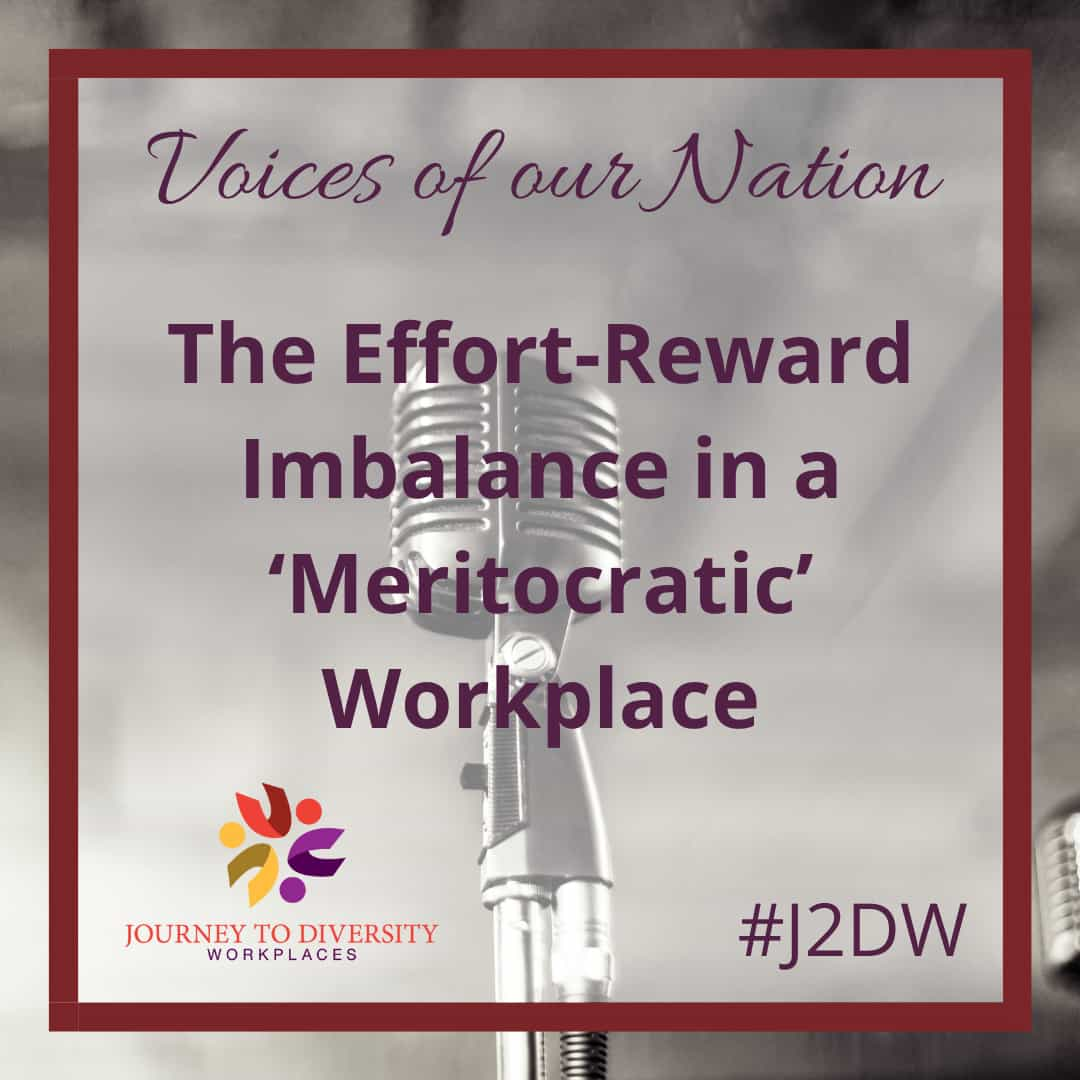
We all know an overly eager peer that you and your colleagues desperately try to avoid. You notice that this person, despite being far from your favourite individual, is always after some goal, rising through the ranks, and stressing about everything. But have you ever considered that this peer might actually be trapped in a toxic mental cycle? Why do you think they chase workplace validation so intensely?
In a profit-driven society, the amount of product generated is valued more than the well-being of the individuals producing said product. The pressure to prove yourself as worthy of your position, the need to achieve more, to overcome the next hurdle, to seek validation from authority figures, and to chase the high of the reward, are all traits exhibited by individuals trapped in a toxic effort-reward relationship.
Meritocracy, according to the Merriam-Webster dictionary, is a system or society designed to credit one’s merit and individual accomplishments or abilities above their family, wealth, or influence, for seats in higher positions of power (Merriam-Webster’s collegiate dictionary). Initially, this was meant to create an equalized field for minorities and underprivileged individuals, however, it soon became rigged by individuals of societal power, further dividing the population. In academic settings, for instance, the SATs were made to level the playing field for all students, but people with access to private programs, SAT prep workbooks, and years of SAT-centric tutoring weaseled their wealthy, privileged way into higher education (Kelly, 2018).
In the workplace, meritocracy is once again emphasized, but executed incorrectly, leaving behind a trace of employees struggling to reach the top while climbing a broken ladder. Meaning, some individuals put in twice as much effort for a reward they might not get, while others that are perhaps more privileged can get by with half as much effort and twice the intended reward. The former then ends up in an exhaustive loop of chasing that reward where achievement endorses this behaviour. Failure demotivates them from doing their job, and both result in extreme burnout.
So, what is there to make of this effort/reward imbalance in the supposed meritocratic workplace? What are employees to do? On one hand, refusing to chase these achievements gives them a disadvantage in competition with their peers, and decreases their credibility and merit. On the other hand, giving into this skewed stance on meritocracy leaves employees feeling discouraged, anxiety-ridden, and unworthy of their position unless they constantly prove so otherwise.
This impacts not only an employee’s relationship with themself, but also their work performance, professional relationships, and their work environment. The emotional burden carried by such individuals devoids them of ‘distractions’ like friendly professional relationships, focusing on what is truly important… merit. Their work performance is negatively affected as well. Despite their determined efforts, the more failures they encounter, the more discouraged they become from approaching their job with the same level of determination and enthusiasm as they once did, resulting in decreased productivity. How many hits can a person take before they turn around and walk away?
Even if an individual doesn’t fall under that specific, eager title, this pressure is bestowed upon most employees, especially ones financially responsible for their families, women, immigrants, and people of colour. Such groups have certain prejudices that they must overcome to be on the same playing field as their more privileged counterparts. This means that not only is there a major imbalance in their effort-reward relationship, but the argument of us living in a meritocratic society becomes obsolete as it’s clear we are not judged for our merit alone, but rather for the confounding variables that elevate or suppress our accessibility of viable opportunities.
Hence, these groups approach the workplace as a setting to prove themselves worthy, respectable, and credible by working tirelessly to reach the top, which can only be achieved by having merit– a reward for which a disproportionate amount of effort would be needed. There’s a reason why, for instance, a greater percentage, 39%, of female-identifying immigrants have Generalized Anxiety Disorder (GAD) compared to 26% of their male counterparts (Evra & Mongrain, 2020).
In the end, the effort-reward relationship and meritocracy go hand in hand. Although once introduced as a way of promoting equality and encouraging a reward-based approach to work that amplifies performance, these ideas do not represent a sustainable or healthy workplace. What is a company if its workers are burnt out, beat down, and unsure of their value? Ultimately, to acquire that healthy workplace environment, employers must reflect inwards and redefine what it means to be an employee at their workplace and how that mirrors their company’s values. Without this reflection, a workplace is simply a cage in which the hamster runs on its wheel in pursuit of a treat just out of reach.
Sources
Evra, R., & Mongrain, E. (2020, July 14). Mental Health Status of Canadian Immigrants During the COVID-19 Pandemic. Statistics Canada. https://www150.statcan.gc.ca/n1/pub/45-28-0001/2020001/article/00050-eng.htm
Kelly, M. (2018, June 2). Trickle-down distress: How America’s broken meritocracy drives our national anxiety epidemic. The Atlantic. https://www.theatlantic.com/health/archive/2012/07/trickle-down-distress-how-americas-broken-meritocracy-drives-our-national-anxiety-epidemic/259383/
Meritocracy. (n.d.) In Merriam-Webster’s collegiate dictionary. http://www.merriam-webster.com/dictionary/meritocracy
This article was written by summer student Ilesha Prabhudesai and edited by summer student Bayden Summers. This article was funded by the Government of Canada.


